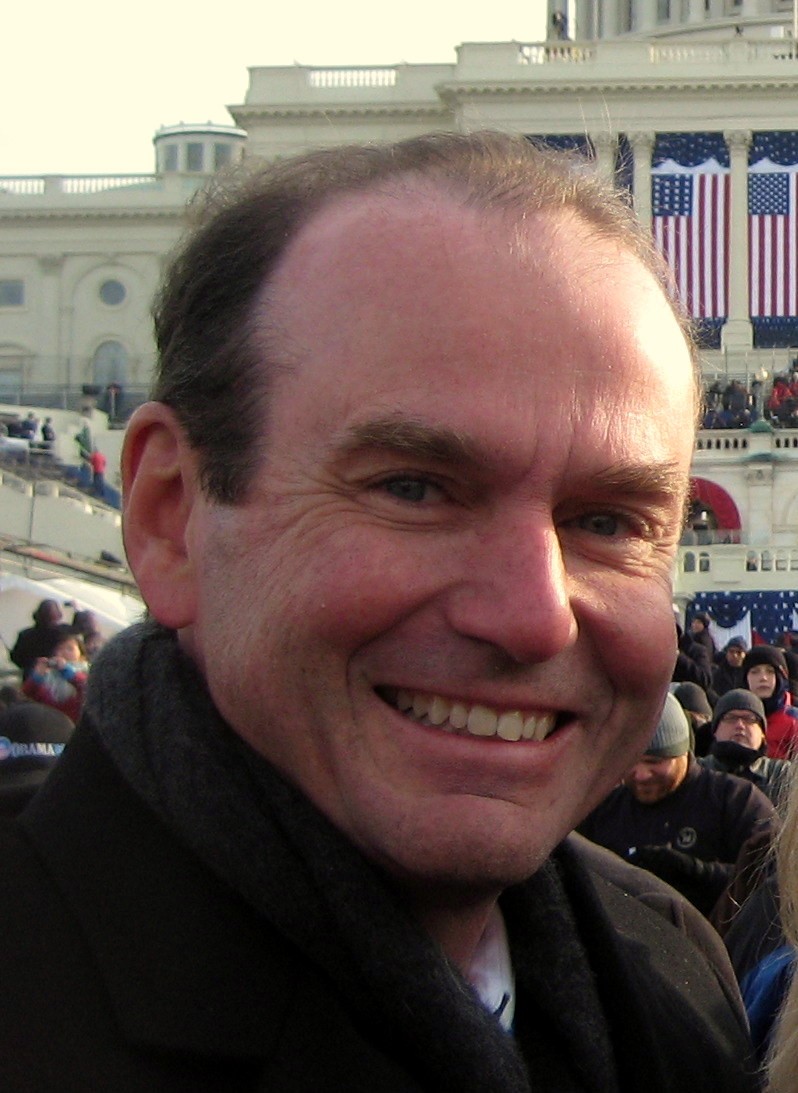
Quaker Business Persons – A Fellowship Centered on Ideas
A group of Quaker business people have been gathering for years to hear each other speak on issues of common interest. Last week they hosted Scott Wallace, who recently ran for congress against Brian Fitzpatrick in Pennsylvania’s First District, losing 49-51% by about 6000 votes. The talk was titled: “Money, Politics and Quakers: How money in politics eviscerates equality in society — and what can be done about it.”
Informative and compelling, Scott was asked to put some high points of his talk into writing so that it could be shared more widely among Friends. His account follows below:
Scott Wallace’s Personal Experience

“I was naive about the corrosive power of money in politics until the US senator I worked for in the 1980’s told me the many hours he had to spend every single day raising money for reelection.”
In fact, that Senator had to raise $7000 every day for his re-election bid. That was in the ’80s; today it’s much more. Plus, time spent fundraising is time spent away from serving constituents–it’s an unhealthy cycle.
“Then (came) the shock of my own experience last year, where my Republican opponent not only welcomed money from corporate PACs, which I refused, but received over $11 million in help from super PACs funded by unlimited contributions from billionaires like the Koch brothers and casino magnate Sheldon Adelson.”
These wealthy out-of-state funders amalgamate cash to maintain a hold on power in political battles across the country. The money flows irrespective of local issues and can drown out local talent with attack ads.
In fighting back, Scott says he overestimated the voter appeal of a basic argument he made on the campaign trail. His campaign pitch was that his opponent “was for sale, (but) I’m not; I’m only working for the people.”
Scott noticed that campaign financing ensures election outcome disparities because “the most important people in America are not ordinary voters who contribute a little money (to local candidates they support), but the billionaires and the corporations. Voters are not wrong to be cynical; big money does rule.”
Quaker Values
A Buckingham Friends School Alumnus, who also served on the board of Sidwell Friends School, Scott observes that super PACs and outside billionaires’ funding “fundamentally violates (these) Quaker values: All are equal in the eyes of God, Reject all forms of discrimination; Recognize the dignity of every person.”
The Legal Framework – Limitations on Funding set by Congress Were Curbed by the Courts
In his talk, Scott told Friends that “more than a century ago, the corrupting influence of corporate money in politics was so obvious that Congress passed–and President Teddy Roosevelt signed–the Tillman Act, totally banning corporate political contributions. Over the years, Congress passed more limitations, but the courts curbed them, culminating with the Citizens United ruling from the Supreme Court in 2010, allowing unlimited political spending by billionaires and corporations — on the premise that under the First Amendment, money is ‘speech’ and corporations are ‘people.’ The day of that ruling was the birth of superPACs.”
Possible Solutions
In the search for solutions, some have come to mind.
Scott suggests the US Constitution could be amended “to allow Congress and the states to regulate the amount and timing of political fundraising and spending.” He foresees that this would require a powerful grassroots movement demanding change, and notes that a group named American Promise is making good progress building support for this around the states.
A second potential solution could be strategic litigation to convince the Supreme Court to reverse itself. The argument would be that the First Amendment isn’t flawed, but the Court’s interpretation of it was.
Back when the Supreme Court ruled on the issue, Scott says the decision was 5-4. He believes a reversal is possible.
“There are signs that one justice in the majority is having second thoughts, and at least three of the majority’s explicit assumptions are demonstrably wrong.” Organizations like the American Constitution Society and the Brennan Center are working on this.
These assumptions were:
- that disclosure of corporate contributions would surely be required;
- that fundraising couldn’t possibly distract legislators from their legislative duties;
- and that big money wouldn’t corrupt politicians.
Then, there are more modest, incremental, solutions that Scott proposed could work:
- Mandate disclosure of corporate political contributions, so voters/consumers can be informed and purchase/invest/boycott accordingly.
- (Allow) public matching funds for small (under $200) contributions, up to a 6-to-1 match, to relatively amplify the voice of small donors.
In the end, all solutions depend on people choosing to speak up, and educate themselves about politics, becoming informed voters.